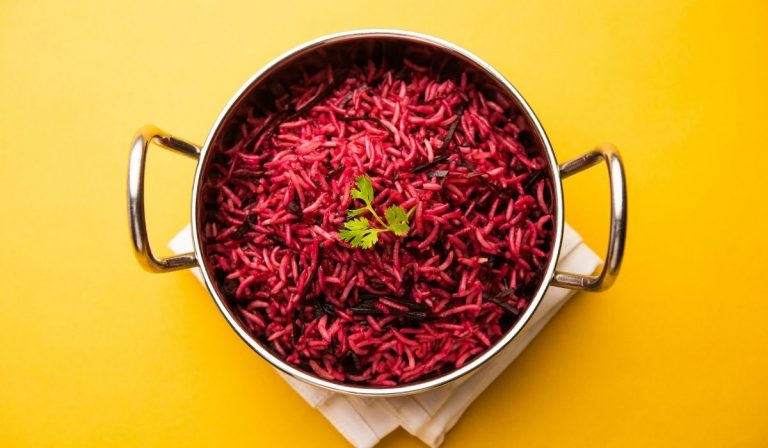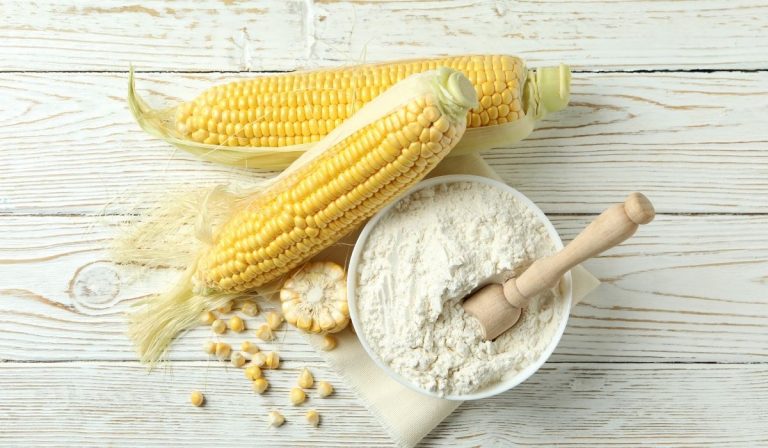Are Mangoes Paleo?
Different versions of paleo diets keep popping up every day, and sometimes it’s hard to keep up. So, we are in no way surprised that you are unsure if mangoes are paleo or not. On the bright side, we might be able to clear your doubts here.
So, are mangoes paleo?
Mangoes are paleo. While most fruits are paleo, you may think that mangoes are not paleo because they are pretty sweet. However, they are a part of many paleo diets with the condition that you eat them in moderation.

Before you get to adding mangoes to your paleo diet, I’m sure you’d love to know what this fruit will do to your body. To this end, let’s discuss the potential health benefits of mangoes and much more in the paragraphs below.
Including Mangoes in Your Paleo Diet
The paleo diet generally encourages the inclusion of fruits, fish, lean meat, seeds, vegetables, and nuts in our diet. So, ordinarily, mango is a potential candidate for paleo. But then, the sweetness of mangoes might have you second-guessing whether they are paleo or not – especially if you are trying to lose weight.
Well, the fact is, mangoes are paleo. But it is also true that they have high sugar content. So, to keep your sugar intake low or help your weight loss journey, only consume mangoes in moderation.
You can eat mangoes in various ways, so you won’t quickly get tired of eating them. For one, you can eat them alone as a snack. You can also make mangoes into salsas and fruit salads or add them to your main dish.
You can also puree mangoes into a smoothie or juice if you want. Then, if you can get dried mangoes, they are also a decent treat.
The sugar content of dried mangoes is higher than that of undried fruit. So, if you intend to eat dried mangoes, you must be even more prudent.

Mango Nutrition Facts
Besides the sweetness of mangoes, the following are some of the vitamins and minerals you can expect from mangoes:
Calories
On average, one whole mango has around 202 calories. In one mango serving (about ¾ cup of sliced mangoes), you should get just about 70 calories. So, overall, mangoes are low in calories.
Protein
The protein content of mangoes is not really impressive. In one serving, you may only get around 1 gram of protein.
Carbohydrate
One mango serving contains around 18 grams of carbohydrate. Of this total carbohydrate content, about 16 grams is sugar.
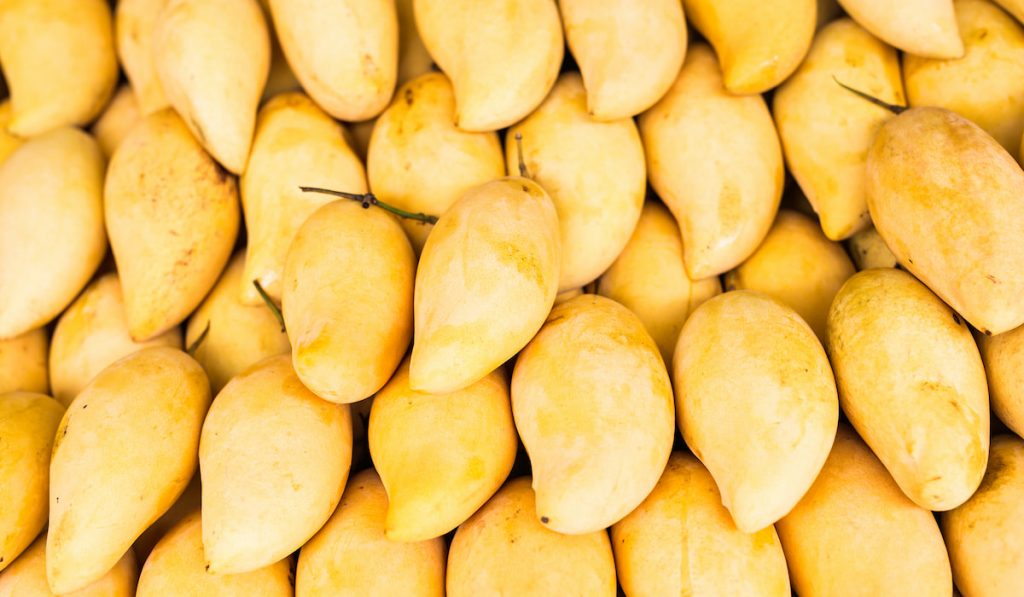
Fat
There is barely any fat in a serving of mango. You can expect just around 0.45 grams of fat in a mango serving – great for paleo.
Vitamin A
One mango serving offers around 7.5% of the daily value of vitamin A.
Vitamin A is particularly beneficial to the eyes and the skin. So, you can expect mangoes to contribute to your eye and skin health.
Vitamin B1
One mango serving provides 3% of the vitamin B1 daily value.
Vitamin B2
In one mango serving, you should get around 3.75% of the daily value of vitamin B2.
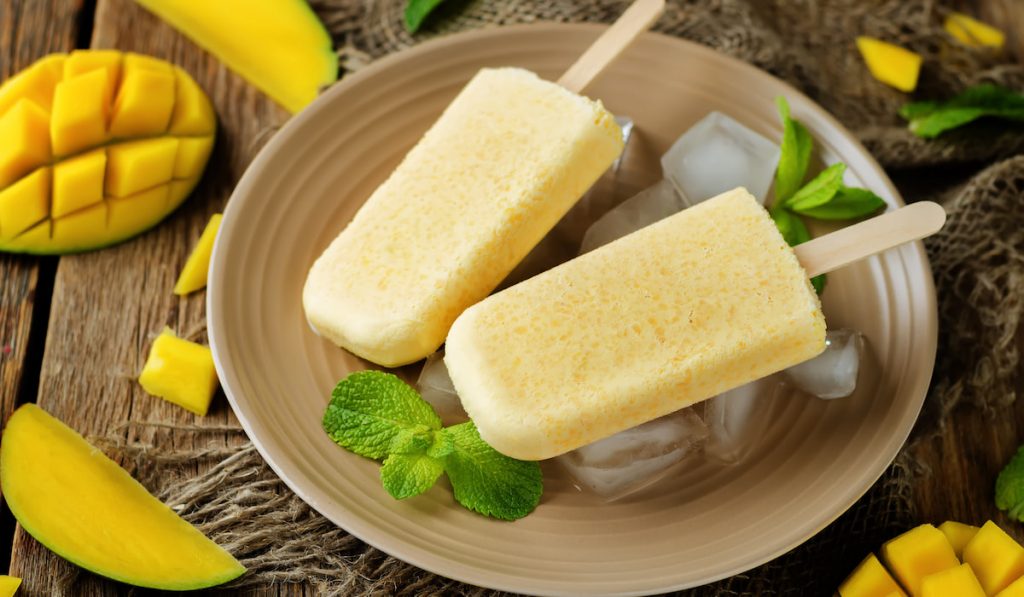
Vitamin B3
Eating one mango serving will give you around 5.25% of the vitamin B3 daily value.
Vitamin B6
You should get up to 9% of the daily value for vitamin B6 in one mango serving.
Vitamin C
Vitamin C is perhaps the most abundant vitamin in mangoes. One serving offers around 50% of the daily value.
Vitamin E
One mango serving offers around 7.5% of the daily value of vitamin E.
Fiber
Mango is a fair source of dietary fiber. One serving can offer you about 2 grams of fiber.
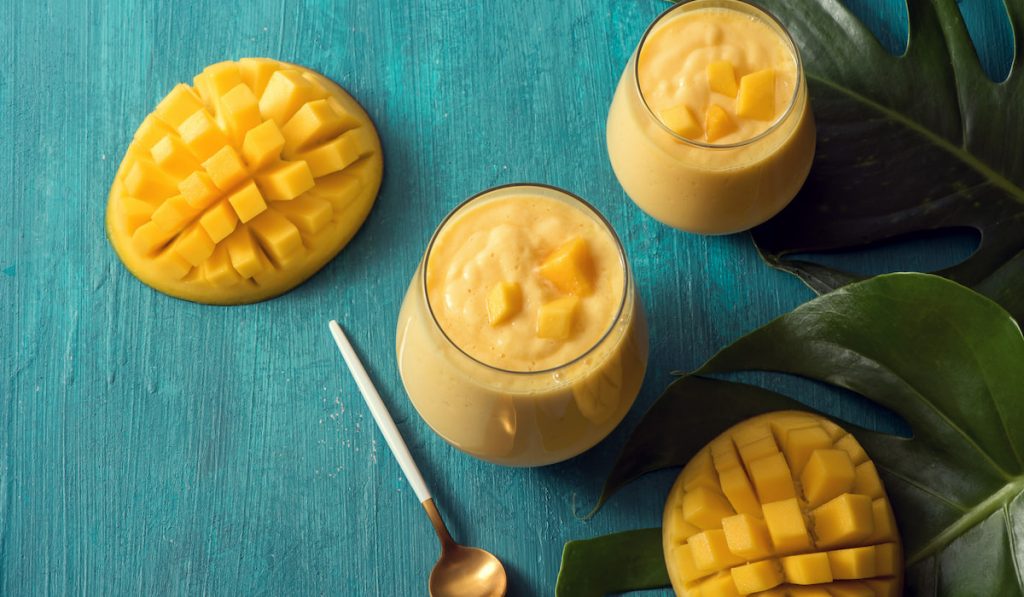
Folate
Besides vitamin C, folate is also pretty abundant in mangoes. One mango serving provides around 13.5% of the daily value.
Minerals
Mangoes offer a couple of minerals, including:
- Potassium – 4.5% of the daily value per mango serving.
- Magnesium – 3% of the daily value per mango serving.
- Copper – 15% of the daily value per mango serving.
Nutritional Benefits of Mangoes
Now that you know some of the vitamins and minerals in mangoes, let’s see how these vitamins and minerals can help your health:
Mangoes Can Help Improve Your Immune System

Mangoes are chock-full of vitamin A, vitamin C, and vitamin E. So, it is no surprise that they can help your immune system do its job better.
Vitamin C and vitamin E have antioxidant properties. They can help mop up free radicals, helping the immune system work better.
Mango Might Be Beneficial in Diabetes
Mangoes are low in calories. So, adding them to your diet can help minimize weight gain, which is a risk factor for diabetes.
Besides, mangoes contain dietary fiber, which can help control blood glucose levels and normalize insulin levels.
Do not be too bothered about the sweetness of mangoes. They might be sweet, but they have a low glycemic index. So, as long as you eat them in moderation, you should be fine.
Mango Can Improve Digestion

As previously highlighted, mangoes contain fiber. So, it can help make digestion more efficient. Besides fiber, mango contains some digestive enzymes.
Mango Can Support Heart Health
Mango contains fiber (pectin), vitamin C, vitamin E, potassium, and magnesium, all of which support heart health in different ways.
Pectin is a soluble fiber. It can help reduce the levels of LDL cholesterol in the blood. With lower blood LDL levels, the chances of heart disease drop considerably.
Magnesium and potassium can help with blood pressure regulation. As for vitamin C and vitamin E, they can help the heart in many ways, including free radical neutralization and anti-inflammation.
Mango Can Help With Your Vision

As we highlighted before, mangoes provide about 7.5% of the daily value of vitamin A. So, it can help with your vision for sure.
Besides vitamin A, mangoes contain zeaxanthin, an antioxidant. This antioxidant can protect the eyes from various age-related eye diseases like cataracts and glaucoma.
Zeaxanthin can also protect the eyes from damage by high-energy light waves.
Conclusion
Mangoes are paleo. They might be super sweet, but they have a relatively low glycemic index. So, they should have no adverse effect on your health as long as you consume them in moderation. In fact, mangoes can help your heart, vision, digestion, blood sugar control, and immunity if you eat them right.
Resources
- https://www.paleodiet.co.uk/mangoes/
- https://www.thepaleomom.com/wiki/mango/
- http://www.surepaleo.com/are-mangoes-paleo/
- https://themerrymakersisters.com/paleo-magoes-good-for-you/
- https://www.bbcgoodfood.com/howto/guide/what-paleo-diet
- https://www.mayoclinic.org/healthy-lifestyle/nutrition-and-healthy-eating/in-depth/paleo-diet/art-20111182
- https://www.webmd.com/diet/ss/slideshow-fruit-sugar
- https://www.mango.org/mango-nutrition/
- https://www.healthline.com/nutrition/mango
- https://www.healthline.com/nutrition/vitamin-a-benefits
- https://www.healthline.com/nutrition/mango-is-good-for-diabetes
- https://www.healthline.com/nutrition/natural-digestive-enzymes
- https://www.healthline.com/nutrition/zeaxanthin
- https://www.webmd.com/eye-health/lutein-zeaxanthin-vision
- https://www.mayoclinic.org/diseases-conditions/heart-disease/expert-answers/prevent-heart-attack/faq-20058253




